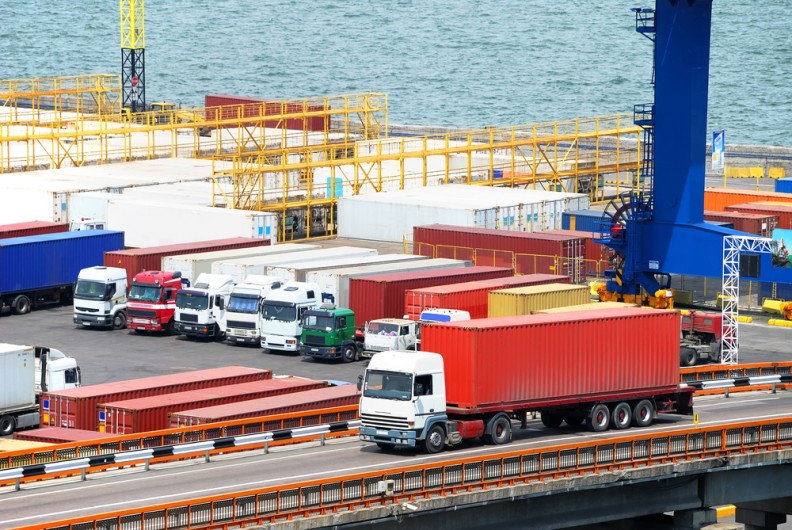Challenges for transport and logistics firms in 2016
Employing more than 1.8 million people across the UK and servicing nearly every other commercial sector, transport and logistics firms continue to be very important to the nation’s growth. Confidence remains cautiously optimistic in the sector with continuing government support and significant investments in the UK’s road and rail infrastructure; however, operators remain acutely aware of the challenges ahead.
This article summarises some of the key challenges facing the transport and logistics sector today and, as you will see, there is a really close relationship between the opportunities and the threats in this evolving sector.
Changing customer demands
As more and more sales are made online (more than 20% of non-food retail spending occurs online in the UK, according to a recent British Retail Consortium report) there is an increasing demand for vans to service home delivery. A greater focus in selling online leaves retailers with a challenge: how do they actually put goods in the hands of the customer?
This has implications for the way in which transport and logistics firms structure their fleets and is making some re-think their models. Today’s transport and logistics customers demand even greater flexibility and this presents opportunities for the sector to increase activity over the year ahead. It is certainly no surprise that retail and the related distribution and haulage sectors were the most optimistic about the year to come, as highlighted in the FTA’s Logistics Report 2016.
Cyber security and data protection
Advances in technology and improvements of online networks across the transport and logistics sector are creating some very exciting opportunities, reducing costs and improving speed and operational efficiency. Additionally, in the not too distant future, with significant advances in technology and software, driverless trucks and flying drones delivering products and supplying distribution networks could be a real possibility.
Whilst these are great for consumers (and operators), inevitably, with a greater reliance on technology the issue of cyber security is not going away, and attacks are becoming more sophisticated. Cyber security is absolutely relevant to transport and logistics firms and, as with physical threats, cyber threats need to be taken very seriously.
Now might be the time to review your data protection procedures and implement appropriate changes. With the new EU General Data Protection Regulation (GDPR) finally released, in April 2016, businesses will need to start planning ahead and preparing for the changes. Although the UK would not be tied down to the new rules, it is likely that, following post-exit negotiations, UK data protection standards would have to be equivalent to the EU’s GDPR framework. Firms will therefore still need to prepare for and start to comply with the new EU GDPR data protection rules, before the regulation comes into law in 2018. Find out more about the new GDPR data protection rules at www.hawsons.co.uk/new-eu-gdpr-rules
Skills shortage
In short, the UK is not attracting enough drivers and engineers to the sector and, as we have spoken about before, this is one of, if not the, biggest threat to transport and logistics firms today.
Many other sectors are experiencing skills shortage, including manufacturing and technology, but the transport and logistics sector has been particularly affected. The introduction of the apprenticeship levy (from April 2017), whilst bringing an additional payroll costs for large employers, is a positive development in this area. Much is being done to bridge the skills gap in the sector, but with no immediate remedy in sight and the age profile of the sector continuing on an upward trend, the skills gap may well continue to hamper economic growth.
Find more information on the skills shortage in the transport and logistics sector here.
Wage rate increases and low profit margins
Although the sector will not be one of the hardest hit following the introduction of the new National Living Wage and yearly increases in the National Minimum Wage, transport and logistics firms work with a number of suppliers who do employ large numbers of staff working on the National Minimum Wage, so the impact could well be indirectly passed onto increases in supplier prices in the coming years and months.
The new apprenticeship levy also brings a new substantial payroll cost for larger operators from April 2017. Even despite the price of oil falling, rises in wage rates means that the transport and logistics sector remains largely unchanged, and is still very much a low margin activity.
More from our transport and logistics experts
You can find all of our latest transport and logistics sector news and newsletters here.
If you are looking for advice in a particular area, please get in touch with your usual Hawsons contact.
Alternatively, we offer all new clients a free initial meeting to have a discussion about their own personal circumstances – find out more or book your free initial meeting here. We have offices in Sheffield, Doncaster and Northampton.
Paul Wormald is a partner at Hawsons, working in the Doncaster office. He worked previously with two national firms of Chartered Accountants prior to joining Hawsons in 2001. For more information or advice on anything covered in this article, please contact Paul on pw@hawsons.co.uk or 01302 367 262.[/author_info]
